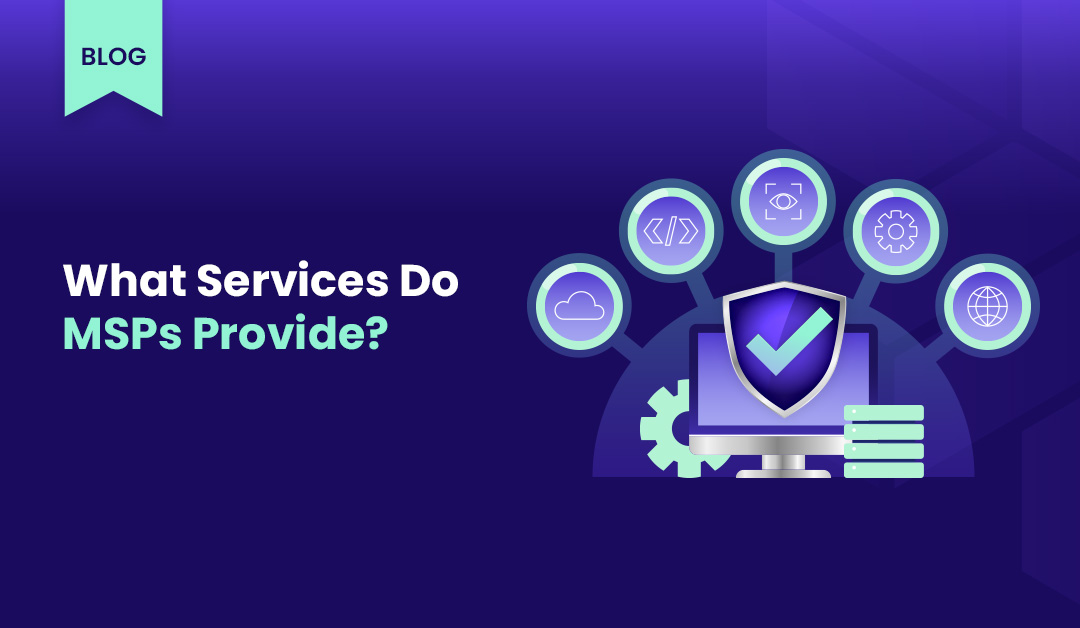Unlocking Potential: A Deep Dive into the Comprehensive Services Provided by MSPs
Managed Service Providers (MSPs), or managed service provider MSPs, have become an indispensable part of the IT sector. They deliver a broad spectrum of managed service provider offerings, including comprehensive IT support, strategic IT planning, proactive IT solutions, and effective infrastructure management. This blog post will explore the diverse managed IT service solutions provided by […]
Author
Date
Category
All Categories
- AI-powered security
- Attacks & Threats
- Cybersecurity
- Hybrid Cloud
- Network
- Network Firewall
- Network Protection
- News
- Remote Workforce
- Security
- Zero Trust
Contents
Popular Posts
Product
Join the Newsletter

Managed Service Providers (MSPs), or managed service provider MSPs, have become an indispensable part of the IT sector. They deliver a broad spectrum of managed service provider offerings, including comprehensive IT support, strategic IT planning, proactive IT solutions, and effective infrastructure management. This blog post will explore the diverse managed IT service solutions provided by MSPs, illustrating how they empower businesses to realize their utmost potential.
Introduction to MSPs: What Are Managed Service Providers?
What is an MSP? Defined as third-party companies, MSPs, or MSP managed service providers, specialize in a complete array of IT services for businesses. They serve as strategic partners, furnishing managed service support with expertise in handling an organization’s IT framework. Their services encompass network and application management, security protocols, data storage, and cloud integration. The goal of utilizing managed services support is to boost operational efficiency, alleviate the internal IT workload, and enable strategic IT planning in line with company goals.
Comprehensive IT Support: A Core Offering of MSPs
At the core of an MSP’s service portfolio is comprehensive IT managed services support. An MSP assumes the role of an organization’s IT department, offering services such as network management, server upkeep, software updates, troubleshooting, and helpdesk support. The significant benefit is the MSP’s ability to provide proactive IT support around the clock, ensuring minimal downtime and minimal disruption to business operations. This allows companies to concentrate on their primary activities while the IT complexities are managed by seasoned professionals.
Strategic IT Planning and Consultation Services
In addition to routine IT support, MSPs also provide strategic IT consulting services and planning. They collaborate intimately with businesses to grasp their unique objectives, challenges, and IT necessities. From this insight, they formulate custom IT strategies that not only align with business goals but also promote IT optimization. This might involve advice on technology refresh investments, guidance on digital transformation initiatives, and planning for IT infrastructure enhancements. MSPs equip businesses with the expertise and insights needed to make informed IT decisions that yield real business advantages.
Proactive Security Solutions: Safeguarding Businesses from Cyber Threats
In the current digital environment, cybersecurity is a pressing concern for companies. MSPs offer proactive security solutions, including network security, data security, and cloud security measures, to shield businesses from emerging cyber threats. They implement robust firewalls, antivirus programs, and intrusion detection systems, carry out regular security audits, and provide security monitoring and threat detection. Additionally, MSPs ensure security compliance and offer services like data backup and recovery to maintain business continuity in case of data incidents. By adopting a proactive stance on security, MSPs help businesses minimize risks and protect their critical data.
Infrastructure Management Services: Ensuring Efficiency and Compliance
A principal service provided by MSPs is IT infrastructure management. This includes the proactive monitoring and administration of an organization’s complete IT infrastructure, covering servers, networks, databases, and applications. MSPs utilize sophisticated tools to ensure efficient operations, preemptively identify issues, and maintain compliance with industry norms. They also manage necessary updates and upgrades, keeping the infrastructure secure and current, which is a key aspect of MSP operations.
Collaboration and Customization: Tailoring Services to Meet Business Objectives
Recognizing that every business has its unique challenges and IT needs, MSPs offer managed service solutions that are both customized and personalized. They engage in a collaborative approach, tailoring their services to align with the specific demands of each business. This may include developing bespoke applications or designing IT architectures that cater to the unique requirements of the company. Through such personalized IT services, MSPs assist businesses in reaching their IT objectives and fostering growth.
Key Components of MSP Services: A Closer Look
While the types of managed services offered by MSPs can vary depending on the specific needs of each business, there are some key components that are typically included in their managed services offerings.
- Remote Monitoring and Management (RMM): This involves monitoring the organization’s IT infrastructure remotely, identifying potential issues before they become problems, and managing IT systems and applications to ensure optimal performance.
- Professional Services Automation (PSA): This includes automating routine tasks, such as ticketing, invoicing, and project management, to improve efficiency and reduce manual effort.
- Security Services: MSPs offer a range of security services, including threat detection and response, firewall and antivirus management, security audits, and compliance management.
- Data Backup and Recovery: MSPs provide data backup services to ensure business continuity in the event of a data loss or breach. They also offer data recovery services to restore lost or corrupted data.
- Cloud Services: MSPs help businesses migrate to the cloud, manage their cloud infrastructure, and optimize their cloud operations.
Benefits of Outsourcing to MSPs: Efficiency, Expertise, and Cost Savings
Outsourcing IT services to an MSP offers several benefits for businesses, such as operational efficiency and allowing them to focus on their core competencies, while the MSP handles the complexities of IT operations.
Secondly, MSPs offer a high level of expertise in latest technologies and industry best practices, which businesses may not have in-house. This includes staying up-to-date with regulatory standards.
Lastly, outsourcing to an MSP can lead to significant cost savings. Instead of investing in expensive IT infrastructure and hiring and training an in-house IT team, businesses can leverage the MSP’s resources and expertise at a fraction of the cost. Additionally, the subscription-based pricing model offered by most MSPs ensures predictable IT costs, making budgeting easier.
Case Studies: Real-World Examples of MSP Services in Action
To truly understand the value and impact of MSP services, it’s helpful to look at real-world examples. Numerous businesses across various sectors have benefited from partnering with MSPs. For instance, a healthcare organization was able to improve its IT security posture and compliance with healthcare regulations by outsourcing its IT operations to an MSP. Similarly, a retail business was able to streamline its IT operations and enhance customer service by leveraging the MSP’s IT support and infrastructure management services.
Conclusion: Leveraging MSPs to Unlock Business Potential
In today’s digital era, IT plays a crucial role in driving business success. However, managing IT operations can be complex and challenging, particularly for businesses that lack the necessary resources or expertise. This is where MSPs come in. By offering comprehensive IT support, strategic IT planning, proactive security solutions, and efficient infrastructure management, MSPs can help businesses navigate the IT landscape and unlock their full potential. Whether it’s improving operational efficiency, enhancing security, or driving innovation, MSPs offer a wealth of benefits that can propel businesses forward in their digital journey.
FAQ
IT support from MSPs includes a wide range of services such as network management, server maintenance, software upgrades, troubleshooting, and help desk support. They provide 24/7 support to ensure minimal downtime and disruption to the organization’s operations.
MSPs work closely with businesses to understand their specific goals, challenges, and IT requirements. Based on this understanding, they develop custom IT strategies that align with the business objectives and optimize IT operations.
MSPs provide proactive security solutions such as implementing robust firewalls, antivirus software, conducting regular security audits and vulnerability assessments, and providing real-time monitoring and threat detection.
MSPs work closely with businesses to understand their specific needs, then tailor their services accordingly. This could involve customizing IT solutions, developing bespoke applications, or designing IT architectures that meet the specific needs of the business. By offering such personalized services, MSPs can help businesses achieve their IT goals and drive business growth.
Get Started with Timus
Zero Trust. Adaptive Cloud Firewall. Secure Remote Access. In one.
